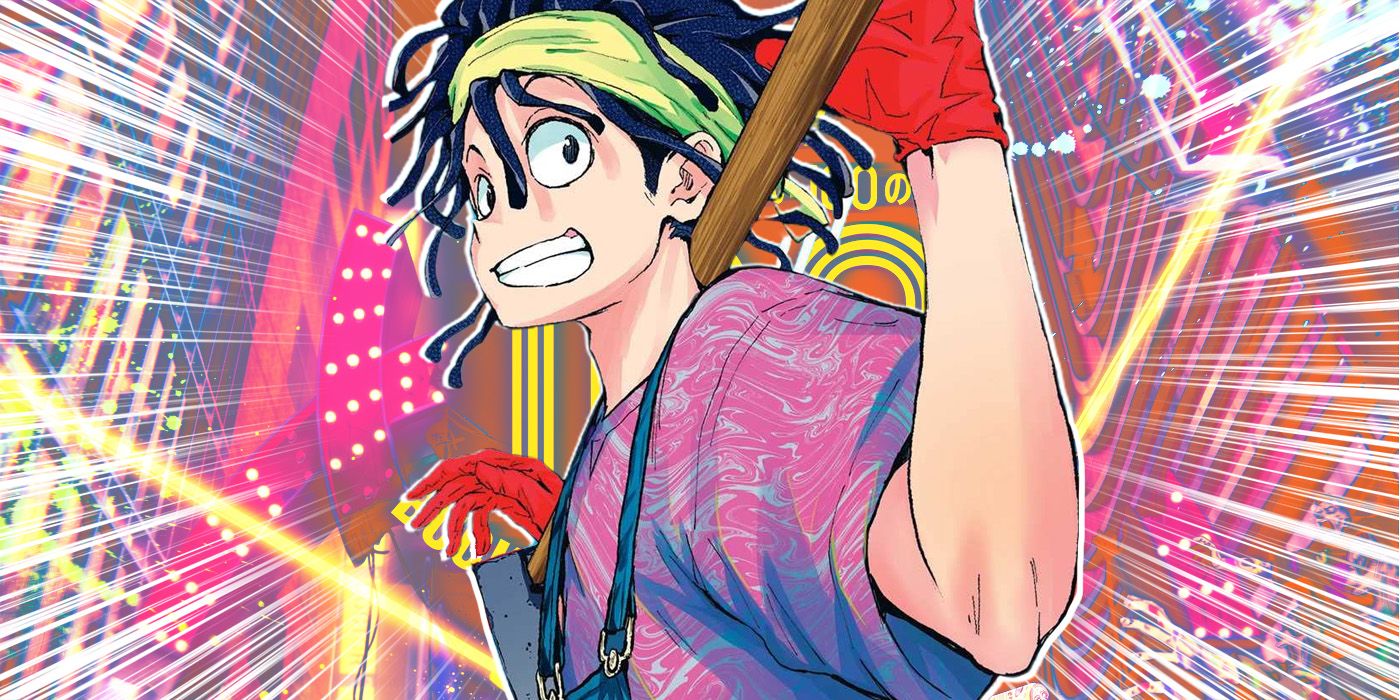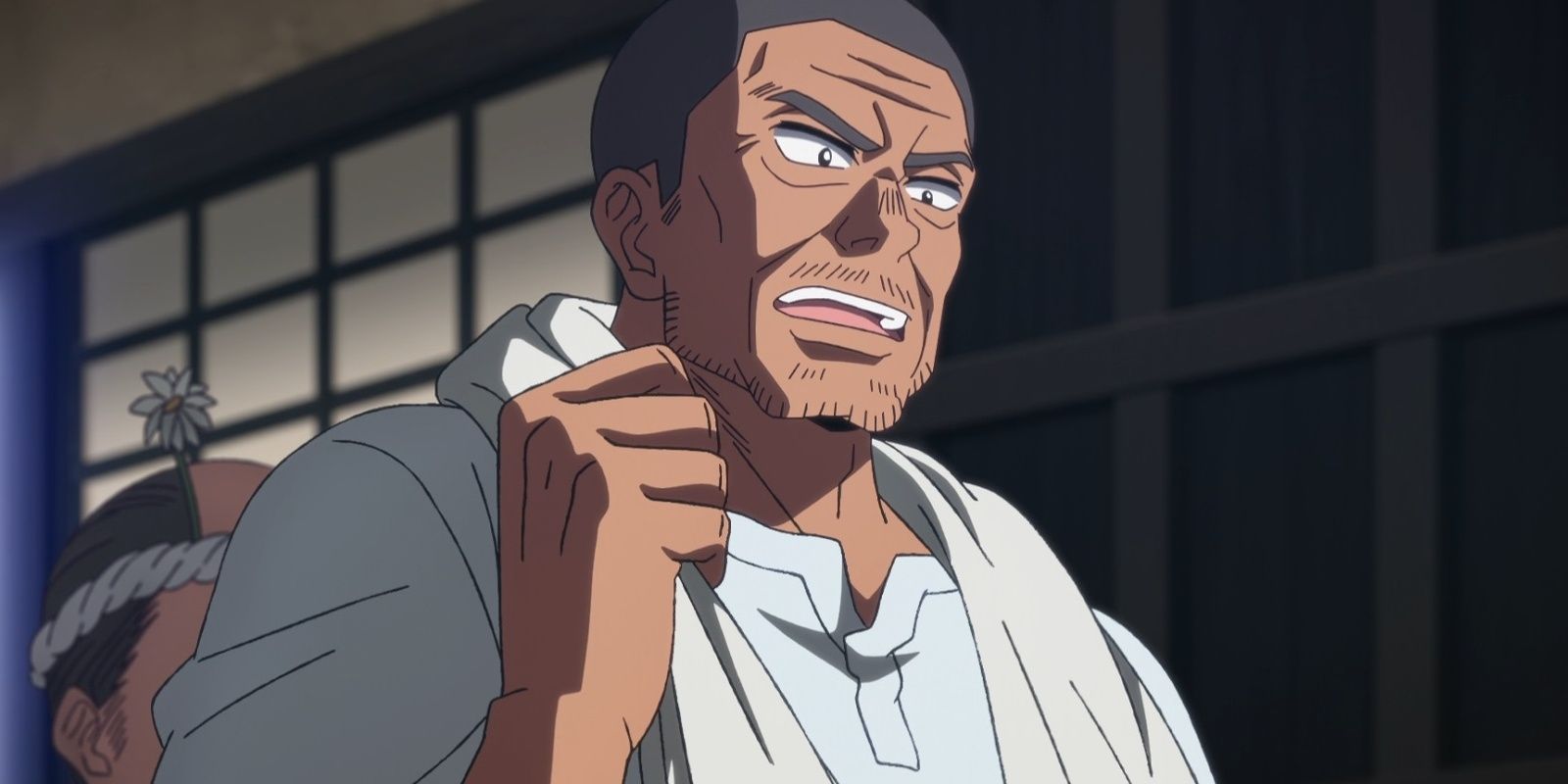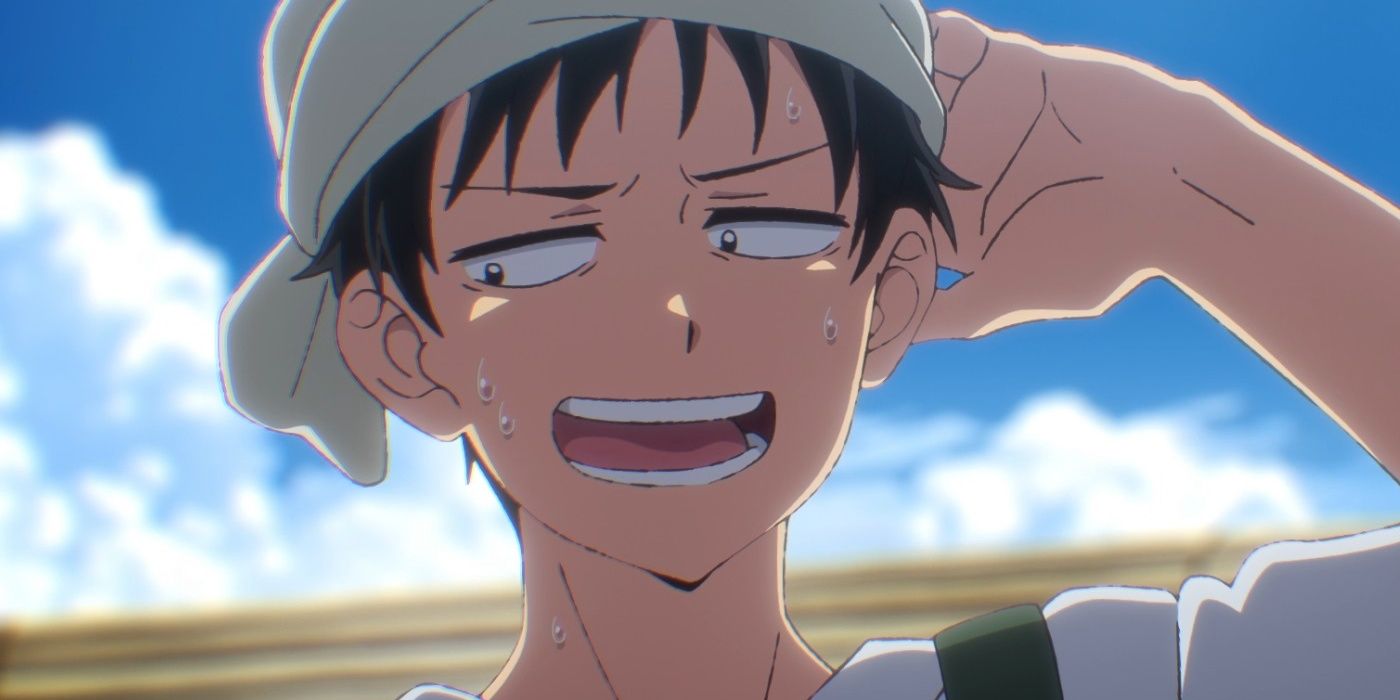Summary
- Zom 100 critiques Japan's work culture and glamorization of big city life, illustrating how the zombie apocalypse exposes the flaws of urban living.
- Zom 100 is part of the growing trend of anime subversions in many ways, alongside Oshi no Ko and Chainsaw Man.
- Akira's return to his rural hometown and acts of kindness toward his family showcase his growth. He's a regular shonen hero after all.
Zom 100: Bucket List of the Dead is an outstanding title in the Summer 2023 anime season that turns the zombie apocalypse genre on its head in ways that High School of the Dead never could. This show isn't just "anime Dawn of the Dead" or even a well-meaning parody of The Walking Dead. It has highly resonant themes and commentary that use the zombie apocalypse as a mere backdrop.
Most of all, Zom 100 critiques 21st-century Japan's brutal and exploitative work culture, as shown in Episode 1 when Akira felt dead inside at his suffocating office job and found freedom when zombies took over. But Zom 100's social critiques go beyond the office — this show's recent episodes also questioned the constant glamorization of big city life, suggesting that Tokyo is overrated and Japan's depopulated countryside had it right all along.
Zom 100 Takes the Glamor Out of Big City Life
Zom 100's narrative harshly critiques many aspects of modern work life in Japan, which is what launched the entire story, but there's more to protagonist Akira Tendo's life than his previous job. He was not born and raised in Tokyo — Akira grew up in a small rural town, and in true anime protagonist fashion, he went to the big city to reinvent his life and make it big. Plenty of anime series glamorize that idea and portray the transition from rural to urban life as a major upgrade to their quality of life, but it's not always so. In any nation, big cities are loaded with wealth and opportunities — but also exploitation and intense competition. Rural citizens like Akira Tendo are wowed by the skyscrapers and crowds, then realize that becoming a movie star or getting rich in Tokyo's massive capital is really just a pipe dream. The big city is a jungle, and it eats people alive.
Zom 100 didn't just critique Japan's modern work culture with Akira's hellish job at that company. The anime also comments on the constant glamorization of urban life, suggesting that big city life may be overrated. Moving to such places may simply create new problems rather than fix the protagonist's existing issues, as Akira Tendo found out for himself. He wanted to get away from boring, stifling country life, only to realize he had jumped right into the fire at Tokyo. The zombie apocalypse simply took that to the next level, with the densely-packed citizens being ideal prey for the ever-spreading zombie horde. In a zombie apocalypse, cities are deathtraps, while the thinly populated countryside will provide respite with sheer distance from other people and more room to maneuver.
Akira primarily returned to his home village to check in on his parents, but this trip also gave him an excellent excuse to escape the crowded deathtraps of Tokyo's streets, and Akira might never go back. When zombies are on the rise, cities and rural towns trade places as the ideal place to be, and that should help Akira realize what he's been missing all along. The zombie apocalypse is a distant problem for the villagers, who support one another with hard work. Akira might be tempted to stay, but knowing him, he'll wander off somewhere else to keep crossing off items on his bucket list. Ideally, though, he won't do it in Shibuya Ward or other crowded urban centers.
Zom 100 Joins the Trend of Anime Subversions With Chainsaw Man & Oshi no Ko
Zom 100: Bucket List of the Dead is doing a marvelous job subverting the zombie apocalypse genre with its blended horror and comedy and even its use of colorful blood sprays and Akira's indifference to society's collapse. It mocks the idea of working hard to climb the corporate ladder, makes the apocalypse fun, and more recently, de-glamorizes the anime cliché of a restless rural youth moving to Tokyo to kick-start their careers. Zom 100 questions almost everything that makes slice-of-life anime series about the workplace function, and it happens to have zombies, too. It's not a Dawn of the Dead deconstruction — it's a broader anime deconstruction. Perhaps anime fans and producers alike have reached saturation point, unwilling to rotely support all these age-worn anime clichés any longer. After all, there are many subversive anime manga/anime series out there right now — Zom 100 isn't alone.
Some of the most popular manga/anime titles serializing right now deconstruct, subvert, or outright scorn well-worn anime clichés and tropes, all while embodying broader, more timeless tropes, so they aren't purely satire like Gintama or Konosuba. There could be a variety of reasons why subversions are now in vogue, such as the sheer quantity of manga/anime series out there leading to fatigue for most of those clichés and tropes, so fans take a break and get some meta-humor and meta-commentary with sharply written subversions.
Oshi no Ko, for example, puts a savage twist on the idol genre and even toys around with the isekai genre in fresh new ways, while Chainsaw Man both uses and utterly shreds the shonen rulebook with its character designs and combat system. It's anime, but at the same time, not anime as fans have always known it. Now Zom 100 joins the fun with Tokyo being scorned as dangerous and overrated and country life is the key to happiness and survival.
Country Life Brings Out the Best In Akira Tendo
Zom 100's new rural arc isn't just a critique of Tokyo, though it's certainly that, too. This urban-to-rural transition is personal for protagonist Akira Tendo since it helps him reconnect with his family, and that is bringing out the best in him so far. In Episode 9, Akira apologized to his parents for taking all their love and support for granted, and he strove to repay them with chores and other acts of kindness. Even Akira's gruff, tsundere father appreciated it, and his friendly mother found it a welcome surprise. Akira is setting aside his bucket list antics for now to humbly return to his family's roots, and in a way, its subversion squared.
Shonen anime protagonists usually fight hard and work hard for the sake of others, such as saving the world or redeeming a villain, but Akira Tendo subverted that with his benign yet selfish pursuit of his bucket list while society collapsed. Now, Akira is subverting his subversion with his gracious return to his hometown and his acts of service toward his parents. In the city, it's easy to become self-absorbed and feel alone in the crowds, as Ruby Hoshino showed in Oshi no Ko and Akira showed in Zom 100's first few episodes. But it takes a genuinely great person to return home with apologies and repayment for familial love and support like Akira is doing. Perhaps he should spend another episode or two in the countryside before resuming his bucket list adventure, and Akira's parents and Shizuka alike are sure to be impressed.




